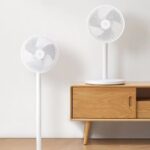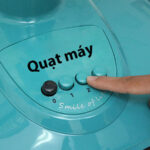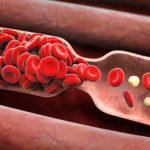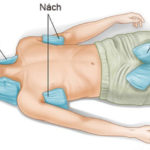Drinking ice water while sitting in front of a fan
During hot weather, many people have the habit of drinking a lot of ice water and sitting in front of a fan to quickly cool down. However, this is a very dangerous habit. Drinking cold water when the body is hot can cause stomach and intestinal cramps, and the risk of acute abdominal pain. In addition, the breeze from the fan can lower body temperature, causing sore throat, fever, pneumonia, and respiratory tract infections. Therefore, when sitting in front of a fan, it is best to only drink filtered or warm water.
Sitting in front of a fan immediately after bathing
According to Doctor Bui Hong Minh (Vice Chairman of Ba Dinh Oriental Medicine Association, Hanoi), after bathing, the body temperature is decreasing, so it is not advisable to immediately sit under a fan or air conditioner as it can negatively affect blood circulation. This can lead to slow blood flow to the brain, as well as affect heart rate and blood pressure.
Especially for those with weak health and low immunity, turning on the air conditioner right after bathing can easily lead to health complications such as stroke.
Directing the fan to blow on the body, especially the head
When the airflow blows directly on the body (at high speed and close range), sweat evaporates quickly, and the skin temperature drops significantly. In areas without wind, sweat evaporates slowly, and skin temperature remains relatively high, causing blood vessels to dilate. At this time, the blood circulation of the whole body is imbalanced, making it easy to catch a cold.
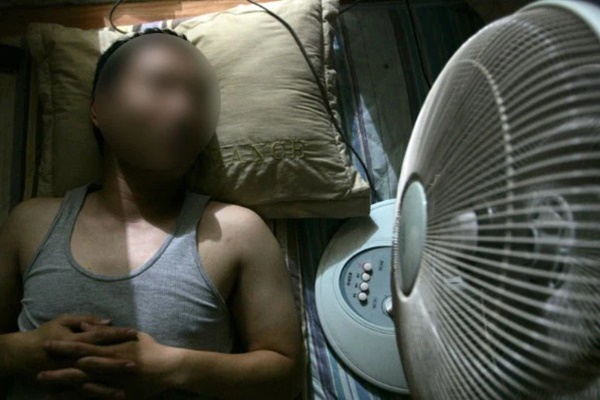
In addition, directing the fan to blow directly on the head can also cause headaches, dizziness, and fatigue. Therefore, when using a fan, it is recommended to sit at a distance and adjust the fan to blow in different directions to avoid catching a cold.
Using a fan when the body is sweating profusely
You may have the habit of coming in from the hot sun or after exercising and sweating profusely, and then immediately turning on the fan at high speed to cool down. This is a big mistake.
During intense physical activity, the blood vessels expand, and sweat is produced in large quantities. The wind from the fan can interrupt the process of sweating, causing the blood vessels to contract suddenly, which is very dangerous.
It is recommended to use a dry towel to wipe off the sweat and then turn on the fan from a distance to cool down gradually to ensure safety.
Setting the fan speed too high
When the ambient temperature exceeds 30 degrees C, which is almost equal to body temperature, the wind from the fan is also hot. Therefore, setting the fan to the highest speed will lower the skin surface temperature, clog pores, and prevent sweat from escaping. This can make the body feel hotter, leading to fatigue, exhaustion, and back pain.
When using a fan regularly, it is important to clean the fan blades, fan guard, and motor shaft periodically to ensure efficient operation. A fan covered in dust and dirt will not provide a clean breeze and will also have a shorter lifespan.
Pressing the face close to the fan
On hot days, many people have the habit of sitting very close to the air conditioner or fan. However, sitting too close to the air conditioner or fan can cause your body to become cold, leading to health issues such as a runny nose, headache, and sore throat. In addition, sitting too close to the fan can cause rapid dehydration, leading to heat imbalance, resulting in headaches, dizziness, and even wind stroke.
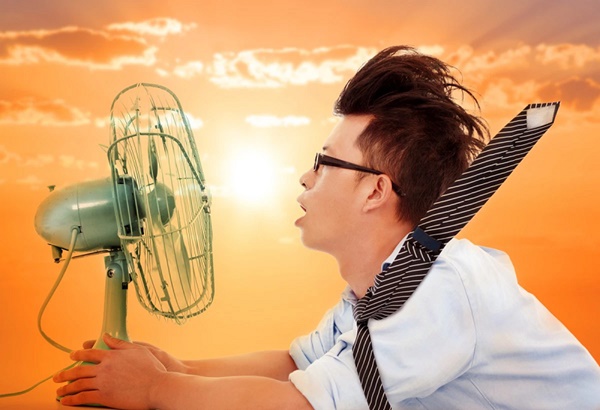
The correct way to use a fan is to maintain a distance from it and not direct the airflow directly at the body.
According to Khoevadep
The Ultimate Guide to Beating Sunstroke
Introducing the ultimate guide to beating the heat – say goodbye to sunstroke and heat exhaustion with these tried-and-true remedies! Chilling your body, sipping on diluted salt water, and indulging in drinks made from tuberous roots, sugarcane, and bottle gourd are the secrets to staying cool and refreshed. These natural remedies are your trusted allies in the battle against the scorching sun.

























